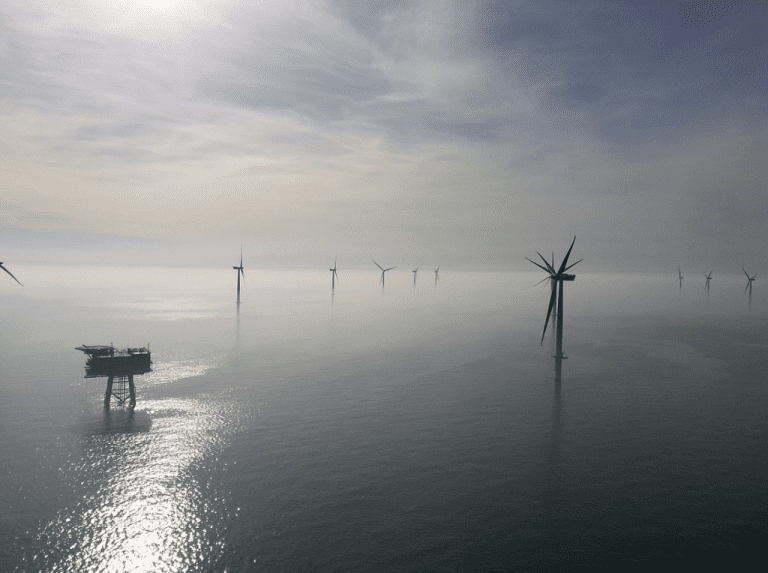
The German offshore windpark Riffgat. (Photo: Impériale)
If it were up to energy economist dr.ir. Laurens de Vries (TBM), offshore wind will become even cheaper in the future. De Vries took part in the European research consortium PROMOTioN. A recent study looked at a potential network of large offshore wind farms (100-200 GW) in the North Sea that is connected to neighbouring countries such as the United Kingdom, Denmark, Germany and the Netherlands.
Each of these countries has its own national electricity price which varies by the hour. De Vries argues that offshore wind farms should be uncoupled from these national power tariffs. They should be free to send the power they generate to the country that offers the highest electricity price (and thus the highest demand). That may sound logical, but at present the prices are fixed by the country to which the wind farms belong, even if the electricity is used by a different country. This is an inefficient use of wind energy and disincentivises wind farm operators to store wind energy at sea or convert it into hydrogen, says De Vries.
TU Delft has collaborated on this research in another area. Prof. Mart van der Meijden and Dr Marjan Popov (EWI) carried out research into high direct current (HVDC) switches that are indispensable in controlling electric power. (JW)
- Would you like to know more? Download the presentation Market design for offshore wind parks.
Do you have a question or comment about this article?
j.w.wassink@tudelft.nl

Comments are closed.